In 2007, the female dog Salsa and the animal keeper Cécile became the first to complete the therapy assistance team training. Since then, the Barry Foundation has successfully implemented animal-assisted activities in the social sphere. It trains its own teams, which visit fifty institutions throughout Switzerland every year.
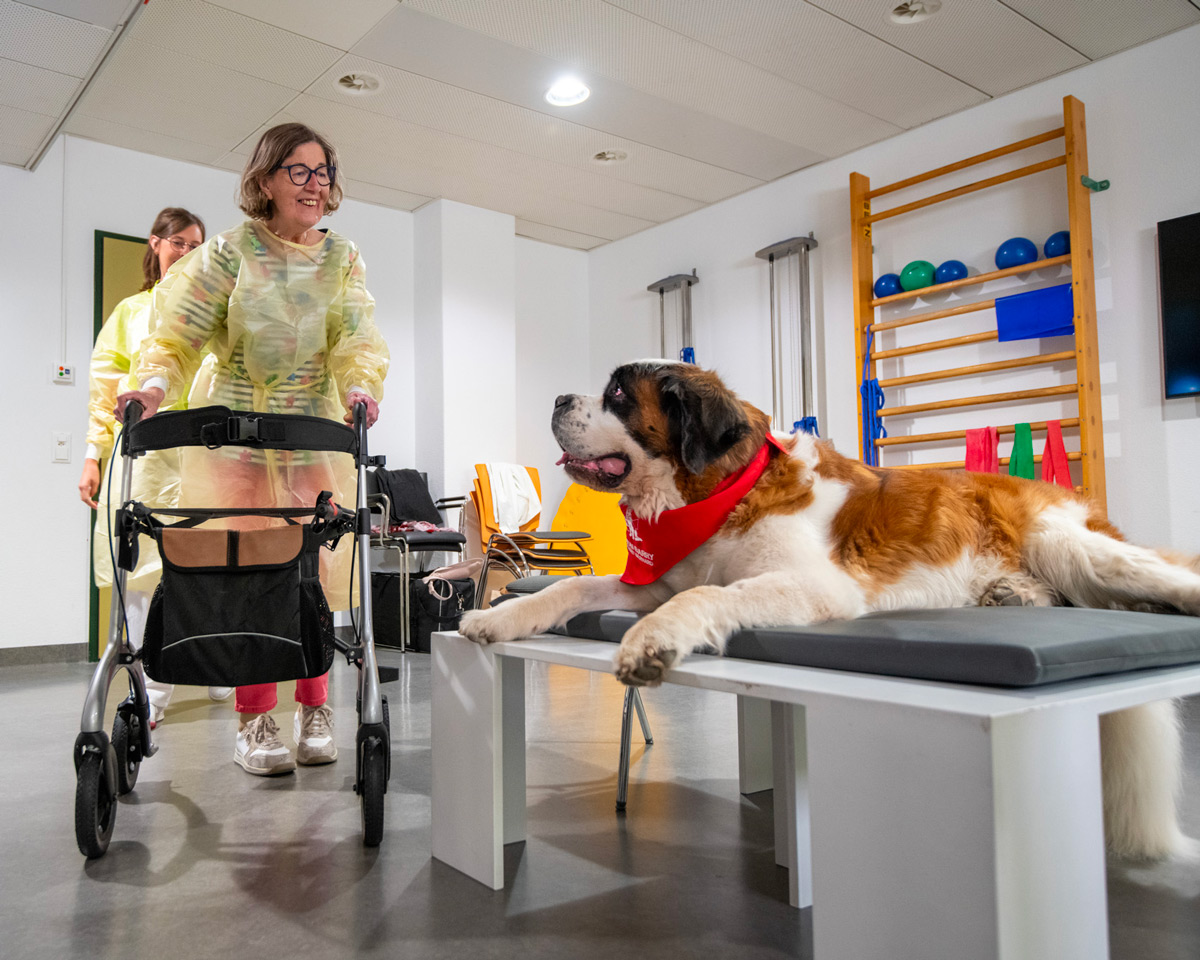
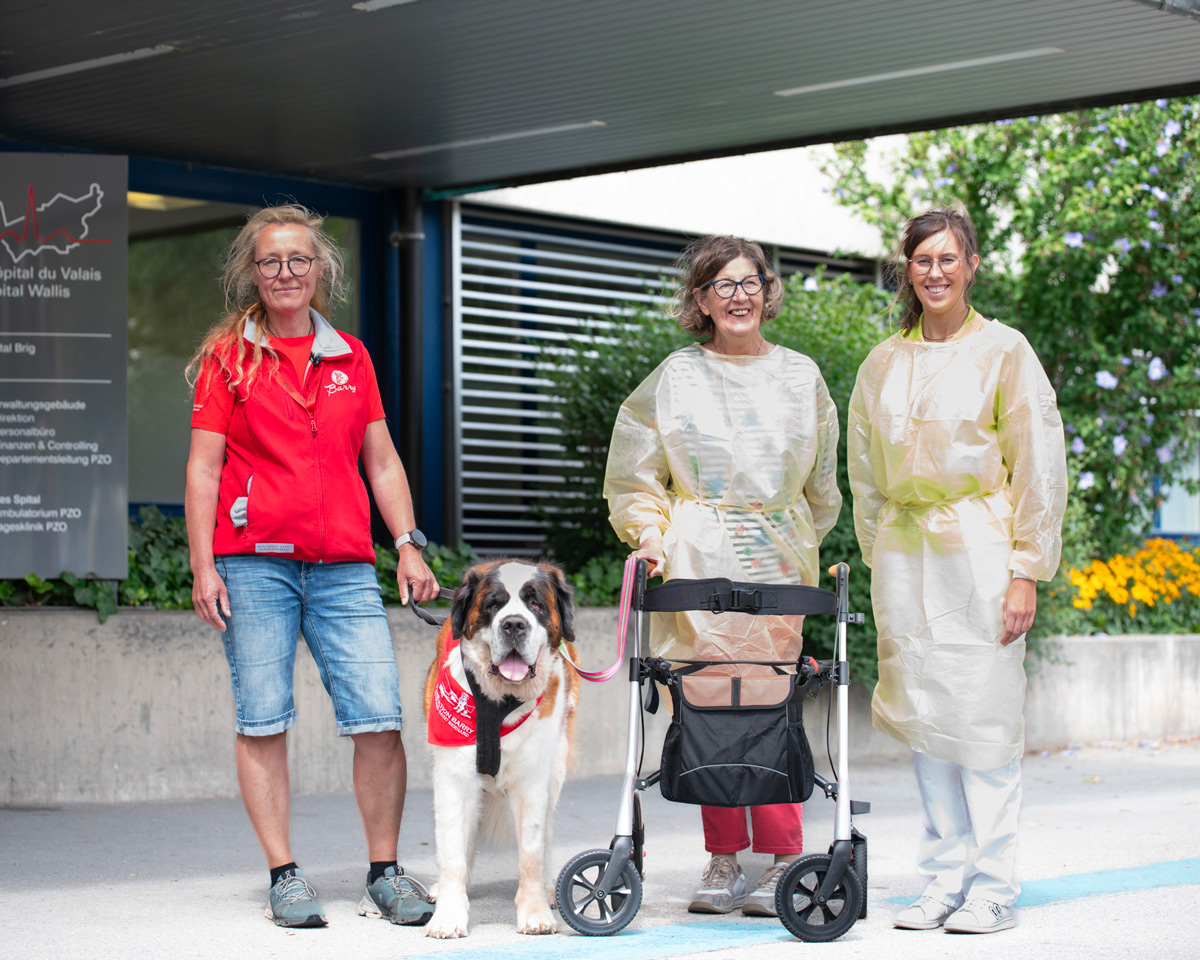
We follow continuous training, apply fixed quality standards and attach great importance to the quality of our social interventions.
We are particularly sensitive to and respectful of the quality of life and well-being of the dogs used and we also have the greatest regard for the individual needs of the people we visit. Our goals are to encourage them and to give them greater strength to improve their well-being. These interactions are based on the assumption that dogs mobilise our physical, spiritual, intellectual and social faculties.
Our visits are organised in the following fields:
Animal-assisted activities
Visits to social institutions
We visit people of all ages, for example in retirement homes or care facilities for people with disabilities, with the aim of fostering social stimulation. The presence of the dogs and the physical contact through stroking alone enriches the daily lives of people living in social institutions. The St. Bernards are a topic of conversation and facilitate contact with the environment. They encourage interaction, social ties, memory and fine motor skills within a group in a playful manner. For bedridden patients, we have St. Bernards who are specially trained to lie in a bed alongside the people concerned.
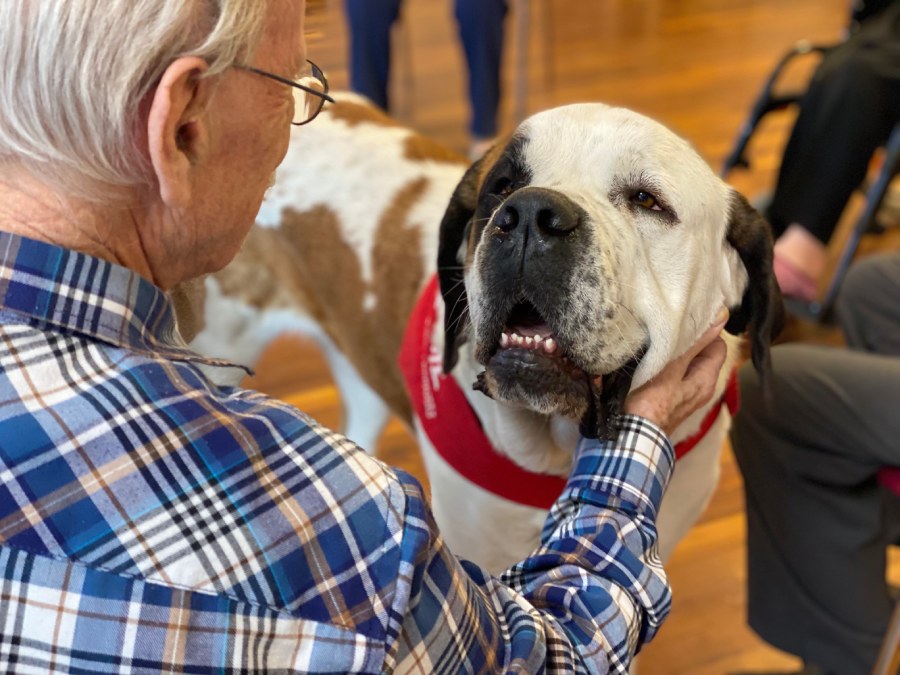
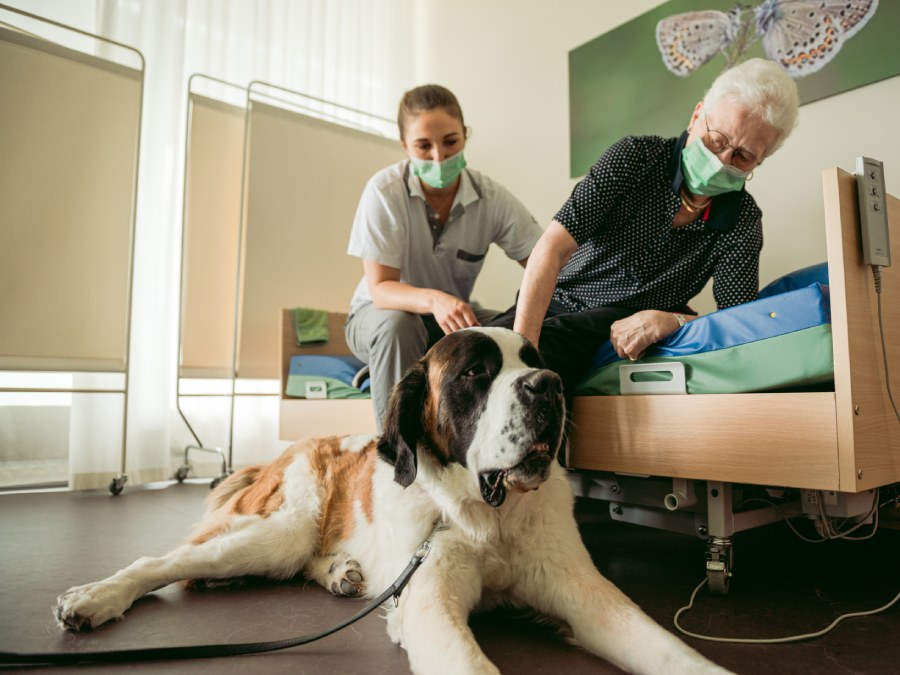
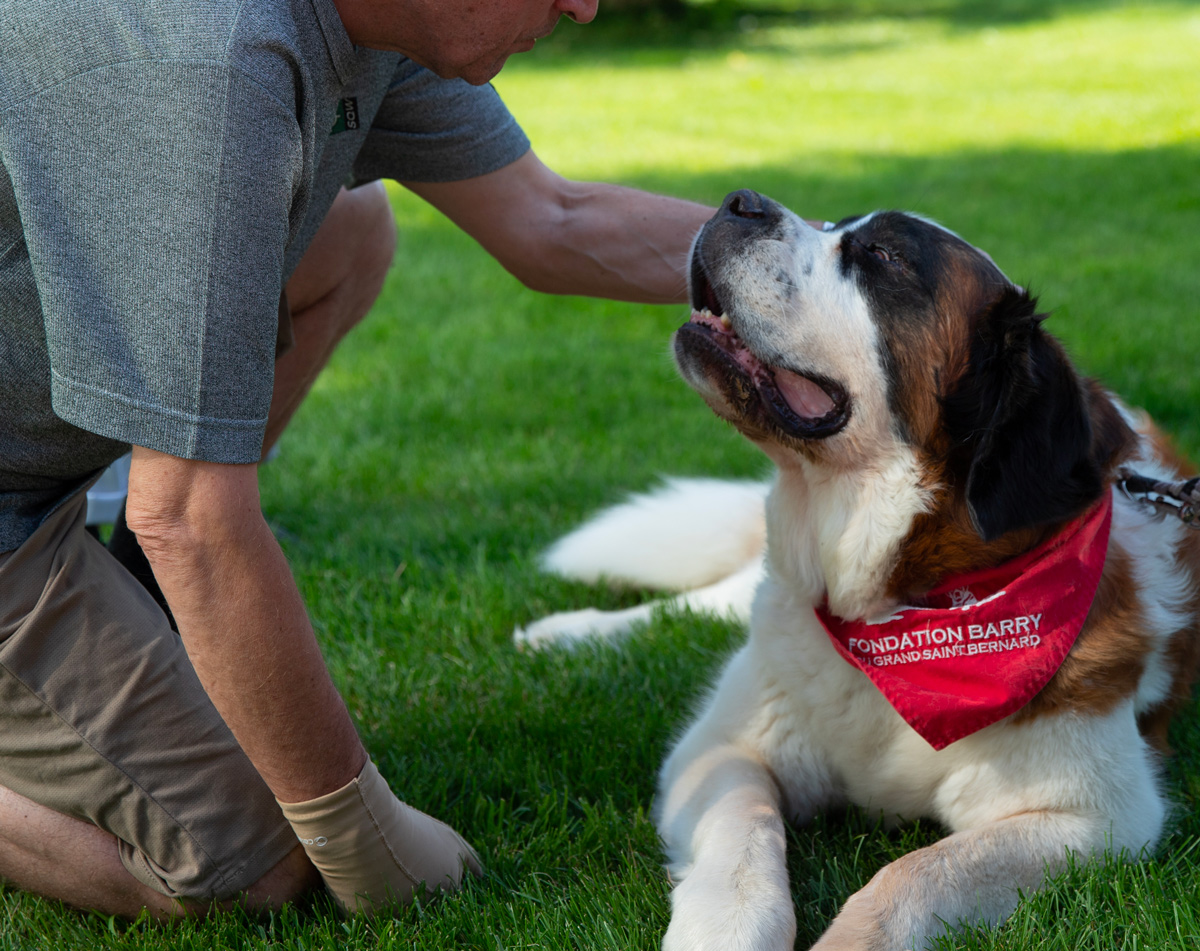
The health benefits of dogs were scientifically proven a long time ago. The mere presence of our St. Bernards can lower blood pressure and heart rate and alleviate feelings of loneliness and depression.
Animal-assisted education
Camps and long-term programmes
Working together with teachers from various schools and other institutions, we design camps lasting several days and longer-term programmes in the area of animal-assisted education. These cover all levels of intervention, namely motor, language and communication, cognition, perception, social, emotional and affective and motivation.
Goals can include :
- strengthening personal resources such as self-confidence
- reducing emotional stress and restoring a zest for life
- increasing motivation and the desire to perform
- fostering relationship building with other participants or leaders
- using the dog as a bridge between adults and children, facilitating communication
- promoting social integration (St. Bernards accept us for who we are, without prejudice)
- helping people to get to know themselves better
- enhancing social skills (general life skills, better impulse control and fewer aggressive outbursts)
The content of our programme also helps prevent dog bites and increases knowledge about dogs while generally providing new experiences.
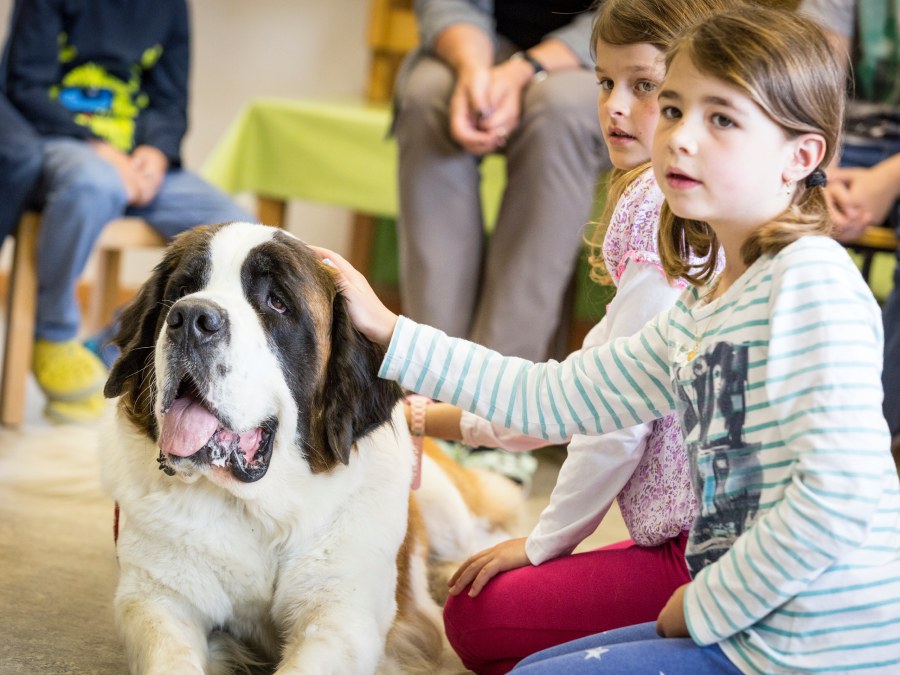
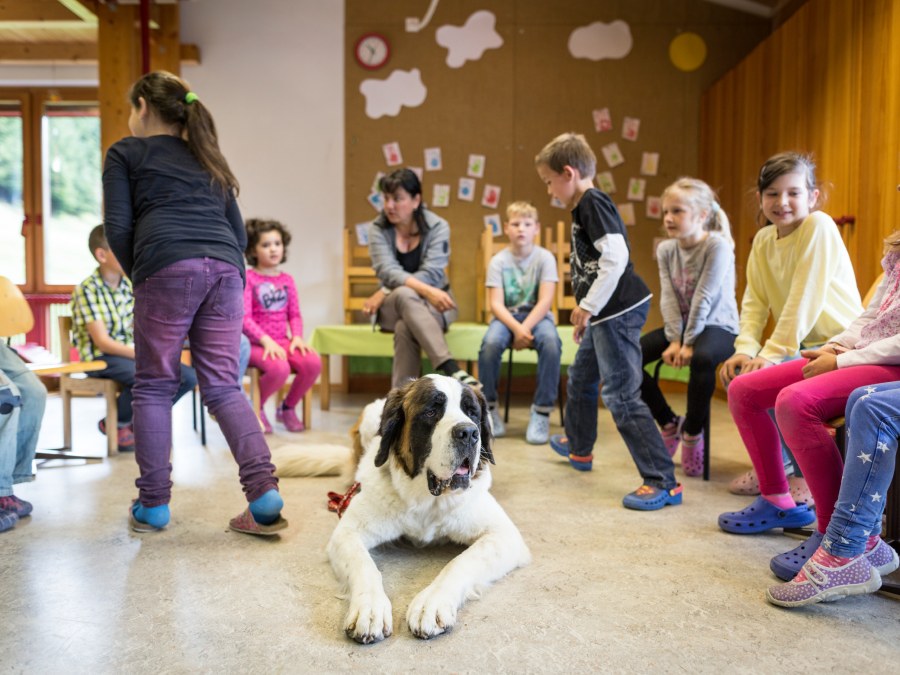
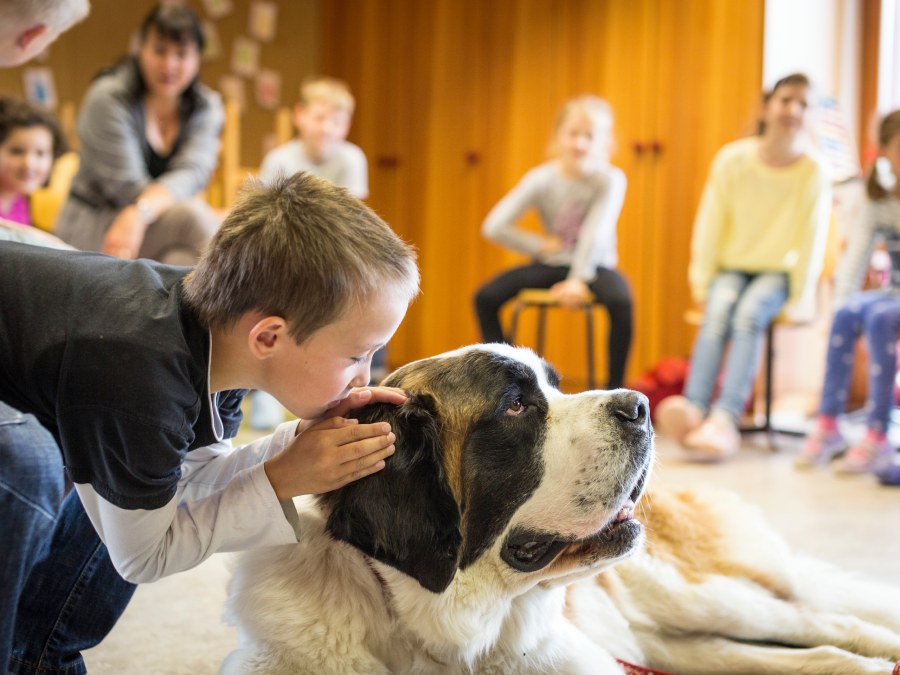
Animal-assisted therapy
Therapy assistance dogs
In collaboration with different therapists, such as occupational therapists and doctors, our St. Bernards are used in hospitals, for example for physiotherapy and in the field of psychosomatics and psychosocial rehabilitation.
Individual measures and curative education
Through targeted activities, our dogs help participants acquire skills and achieve well-being, for example in the case of autistic disorders or other special needs.
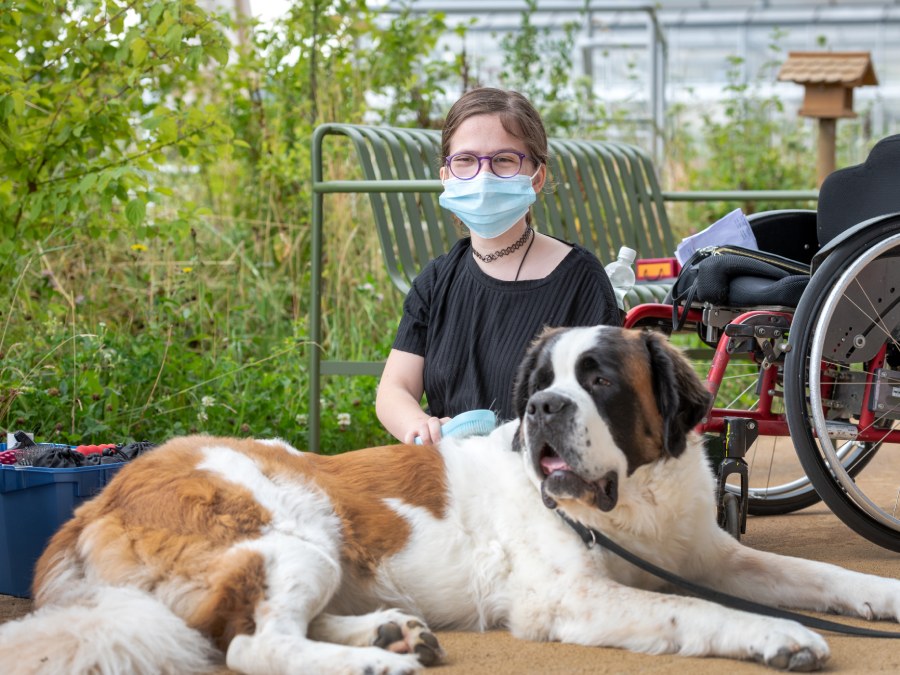
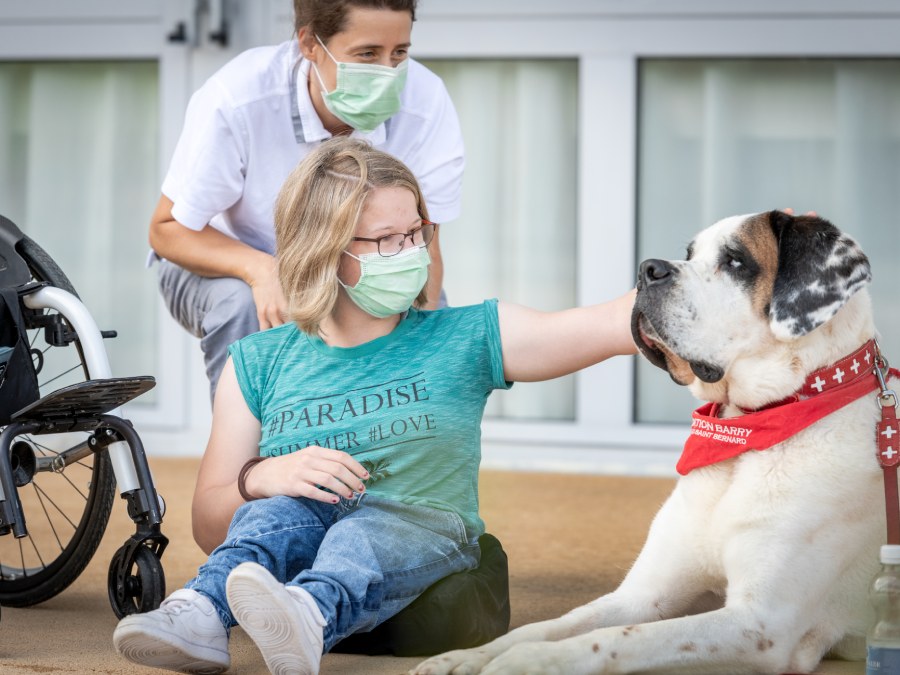
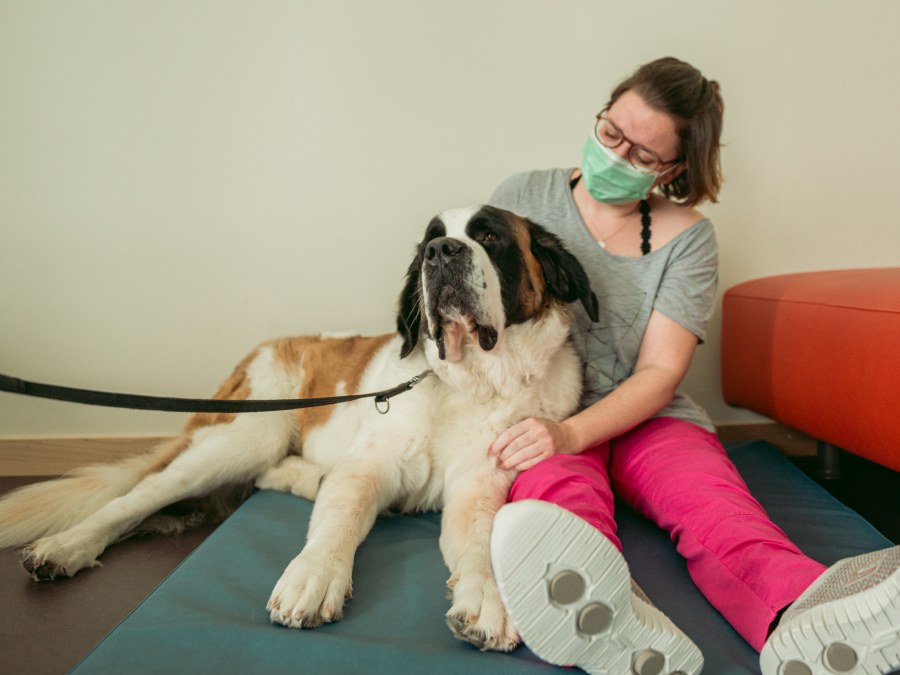
Animal-assisted coaching
As “co-trainers”, our dogs help each individual to discover their own resources. Whenever possible and desired, we take the time outside the familiar environment to observe, explore and embrace our own thoughts. The qualified coach helps identify, develop, materialise and implement the processes.
This form of support is intended for individuals with special needs and who are going through difficult times in their life, with questions and issues which go beyond the scope of normal daily life. It is not a therapeutic intervention.
